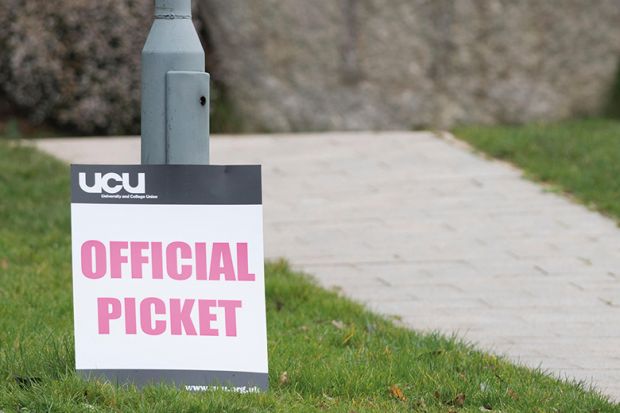Many university staff are not joining the picket lines that have formed at about half the UK’s universities this week.
There are a number of reasons for this. Financial precariousness is one, particularly for those staff on hourly paid or temporary contracts. However, another reason may be that they did not know that they were eligible to join the University and College Union because it failed to engage with them.
That is the fault of the union.
However, others may not join because they do not feel part of the conversation when the narrative has been that this is a “lecturers’ strike” and so their place is questioned.
Such staff should not be harangued for not participating because we have rarely felt included or valued in that narrative. However, imagine the impact on picket lines if they did include more academic-related, professional, support or technical staff?
Imagine the impact if the invisible machinery of the university began to grind to a halt? But that requires inclusion in the conversation from the outset and treating those staff as valued partners in delivering teaching and learning in higher education.
Academic-related, professional, technical and support staff are the invisible glue holding a university together and providing essential services to maintain the day-to-day running of complex institutions.
I have worked in a diverse range of roles within universities, including: strategic planning, library services, estate services, student welfare, and academic standards. Some of these were student-facing and some were more back-office.
How did we get to this position? It is not helped by the fact that the media often describe the Universities Superannuation Scheme as a “lecturers’ pension fund”. In truth, the USS pension scheme is available to all university staff who are eligible. This often relates to their grade within the institution, and many academic-related or professional services staff are thus enrolled within USS.
There is also the fallacy that the UCU is a lecturers’ union. This is a misconception among staff themselves who are often confused over eligibility of the UCU, or assume that the UCU is for academics and Unison is for other university staff.
UCU’s own website states that “whether you are an academic, lecturer, trainer, instructor, researcher, administrator, manager, computer staff, librarian or postgraduate from a university…UCU is the union for you”. Yet the widespread belief that the UCU is only for lecturers or academics is worrying, as evidenced by some references to #lecturerstrike on Twitter.
This myth points to a wider division in universities and the sense that administrative roles are valued less than academic ones. While we all collectively work towards excellence in teaching and research, it can sometimes feel like a thankless task. Too often, administrators are blamed when things go wrong but are rarely praised when things go well.
And too often they are overlooked in conversations that directly affect them. An hour-long talk on changes to the USS pensions at my institution focused on academic staff for almost the whole hour, despite many other types of staff being present.
Such staff are neglected in the media because it is more difficult to understand the withdrawal of our labour in comparison to lecturers. If a lecturer strikes, students can immediately see the effect of cancelled lectures, seminars or tutorials. If other staff members strike, the effect is less visible but it is still felt.
We have simply grown accustomed to a culture within universities that overlooks this vital workforce: IT services, library services, student records, registry, student complaints, counselling, disability services, HR, development, estates, timetabling, finance, planning, and so much more.
We devalue these roles by describing them as non-academic. It is rare in other sectors to describe a workforce by what they are not, non-academic, rather than what they are. Language is important in determining whether staff feel included and valued.
The current strikes have thrown into sharp focus assumptions that universities are about lecturers and students, rather than the sum of their parts. As such, many staff have felt confused about their place in all of this.
Fiona Whelan works in professional services at Queen Mary University of London and was previously at the University of Oxford, where she also gained her doctorate. She writes about transitioning from PhD to university administration on her blog Beyond the Doctorate.
Register to continue
Why register?
- Registration is free and only takes a moment
- Once registered, you can read 3 articles a month
- Sign up for our newsletter
Subscribe
Or subscribe for unlimited access to:
- Unlimited access to news, views, insights & reviews
- Digital editions
- Digital access to THE’s university and college rankings analysis
Already registered or a current subscriber? Login






